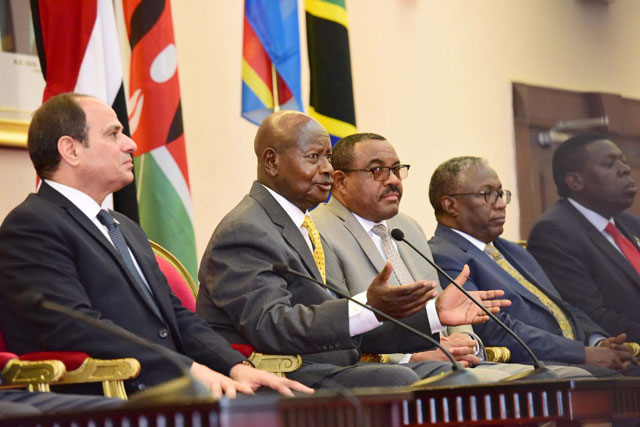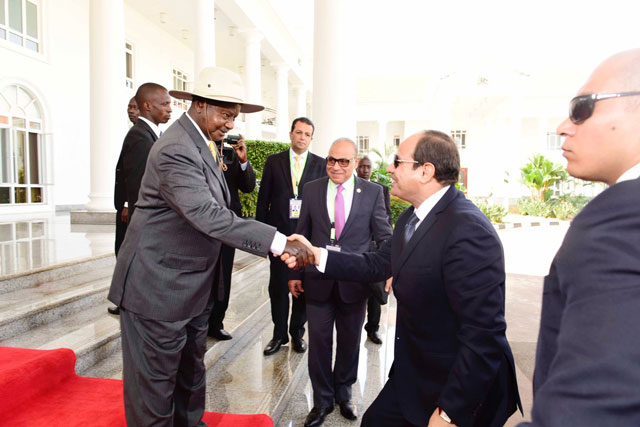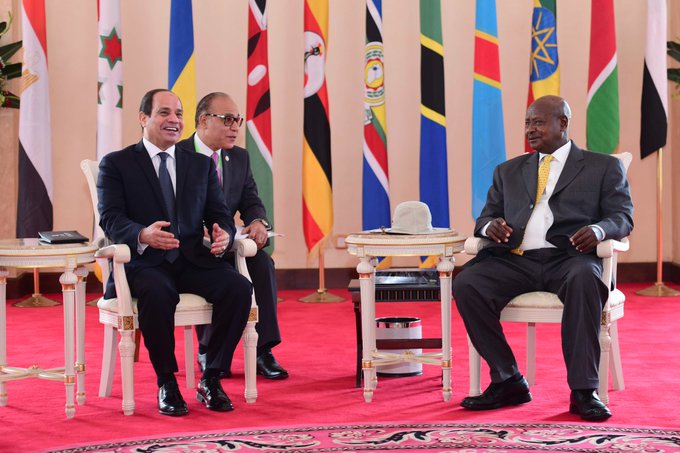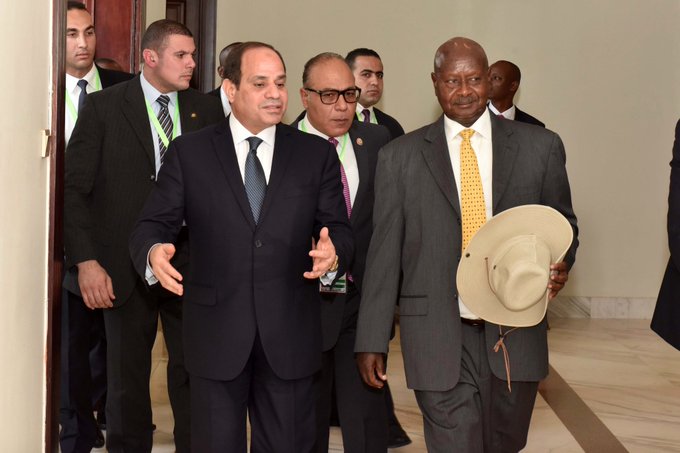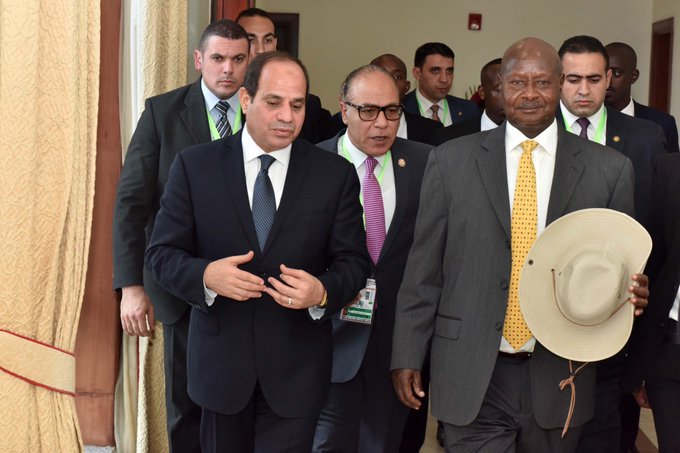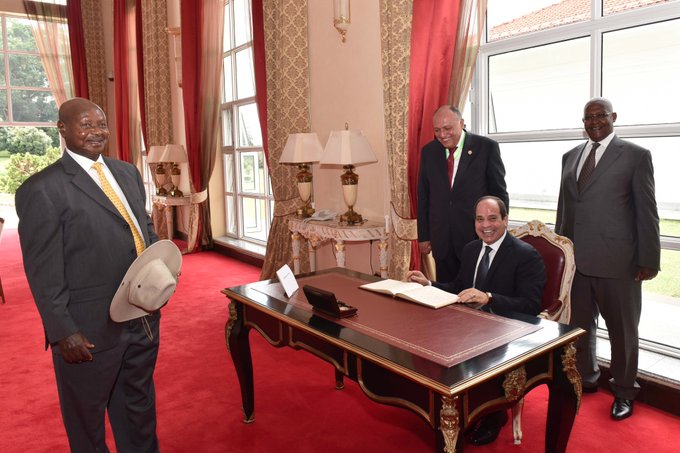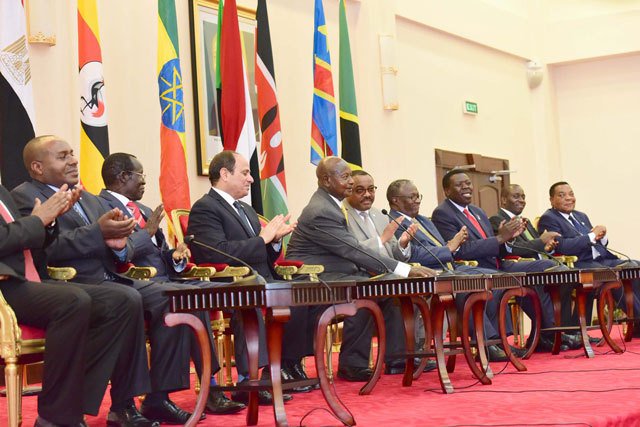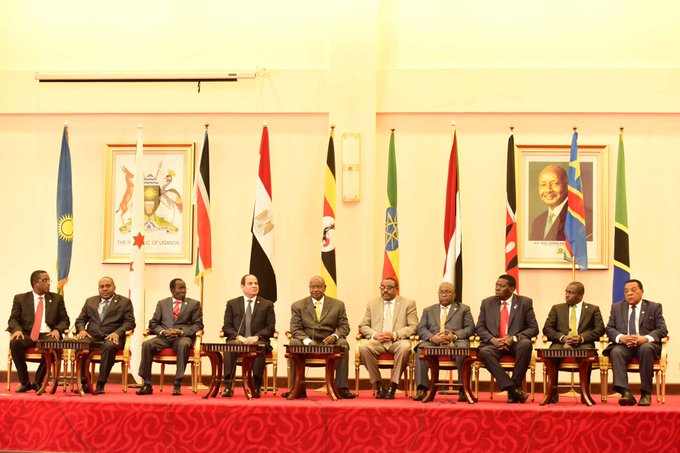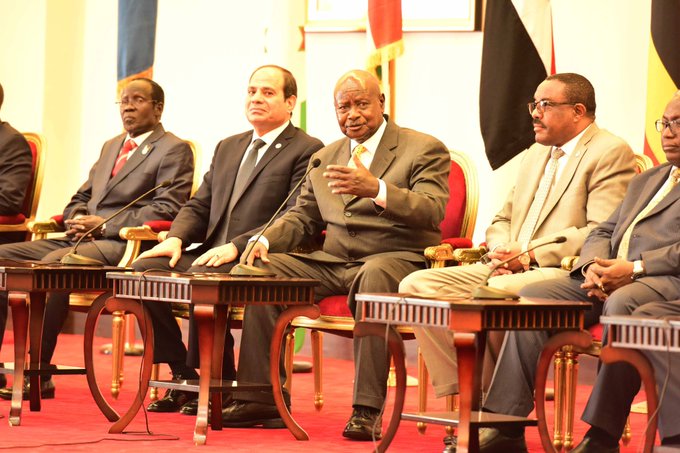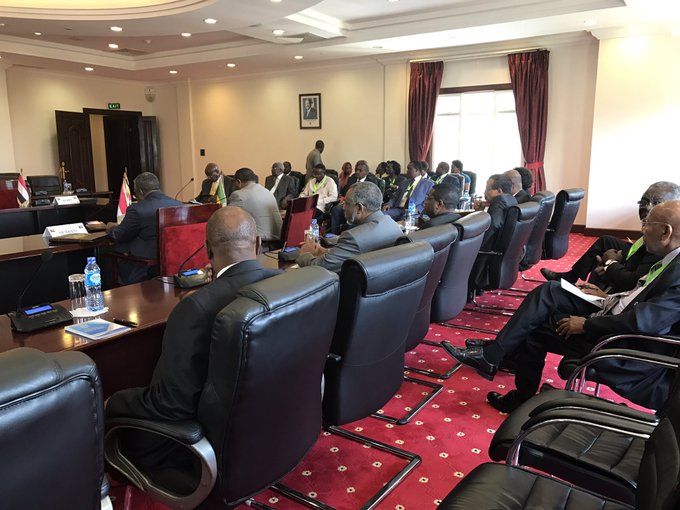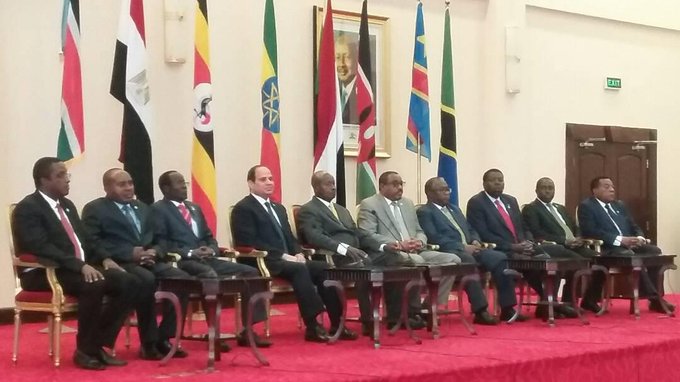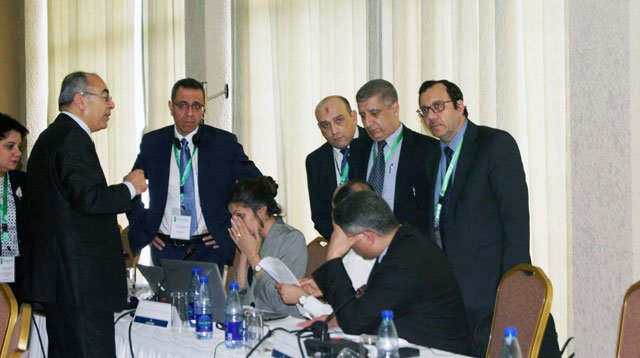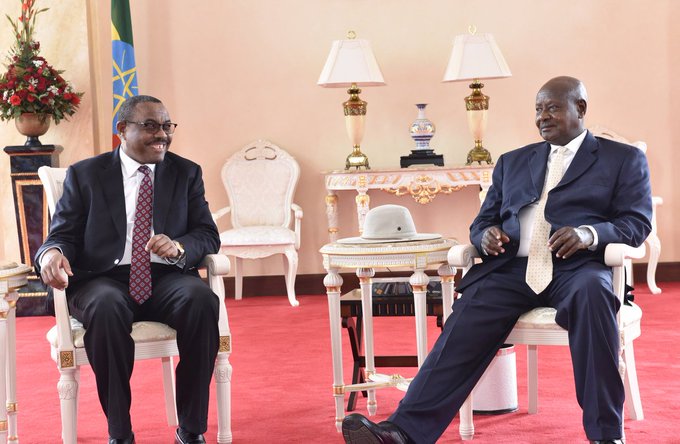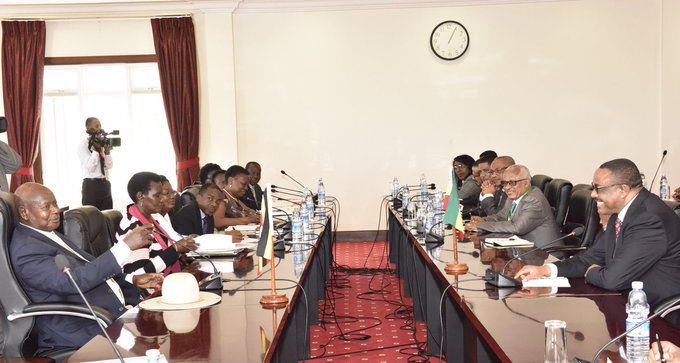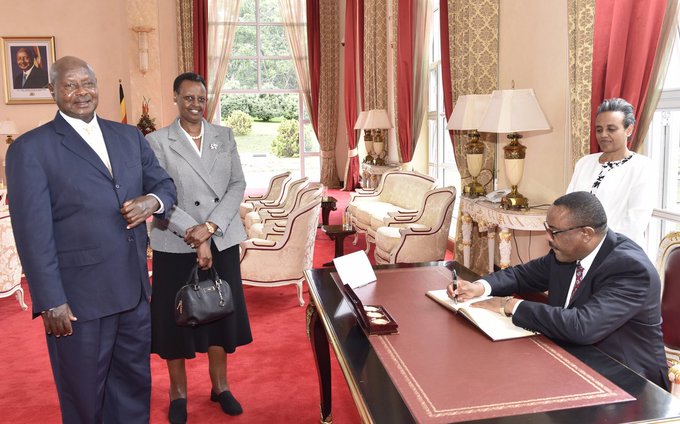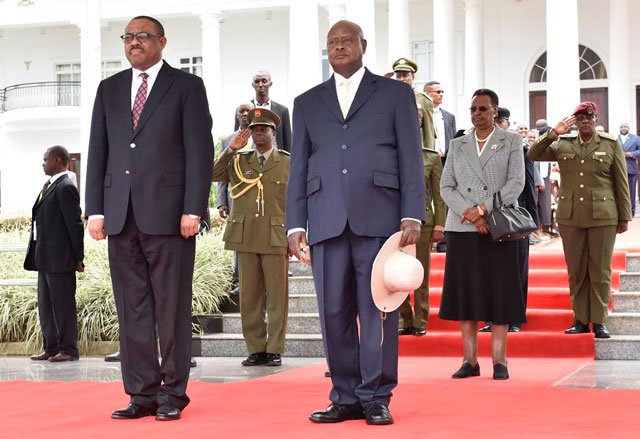KAMPALA, UGANDA
Last week’s summit of Nile Basin countries did not live up to its billing. Only two heads of state bothered to make the journey to the June 20-22 event in Kampala, Uganda to resolve differences around the contentious 2010 Entebbe Agreement which purports to regulate water-sharing among the river’s riparian nations.
Uganda’s Observer newspaper reported that only Egypt's Abdel Fattah el-Sisi and Ethiopia's Hailemariam Desalegn attended the summit, where they “spent five hours meeting behind closed doors with their host, (Uganda) President Museveni”. All 10 heads of state that share the River Nile waters were invited and “had promised to attend in person”.
Egypt and Ethiopia have a particularly fractious history around Nile water resources, not least because of Ethiopia’s contentious Grand Renaissance Dam. The $4.2 billion USD, 6,000-megawatt megastructure, which is scheduled for completion next month, will be the largest structure of its kind in Africa.
Egypt has expressed concern that the dam, situated on the Blue Nile near the Ethiopian-Sudanese border, will reduce the river’s flows and jeopardize water supply. A Tripartite National Committee, comprising experts from Ethiopia, Egypt and Sudan, was created in 2015 to address some of these concerns.
In 2010 Ethiopia, Kenya, Uganda, Rwanda and Tanzania signed the initial Entebbe Agreement which seeks to affirm certain international shares of Nile waters, outlining principles, rights and obligations for co-operative water resource management among member states.
Downstream nations Egypt and Sudan did not initially sign up to the accord, claiming it degraded pre-existing rights and quotas but have, since 2015, engaged with the Agreement’s process.
The Observer reports that “the first signs that all was not well (at last week’s Summit) emerged when news filtered through that Sudan president Omar al-Bashir and his South Sudan counterpart Salva Kiir would skip the event”.
Presidential suites had been reserved in all the five-star hotels in Kampala.
“Two days to the summit, the (Observer’s) sources said, State House got official communication from some embassies, announcing that their presidents would not attend the summit, but would, instead, send representatives”.
"The first call came from Kenya, followed by Rwanda, Sudan, South Sudan, Burundi and Tanzania," said another source, adding that the embassies did not give clear reasons why their presidents were turning down the invitations at the last minute”.
Uganda’s Business Focus reports that “days before the (Kampala) summit, a local Egyptian newspaper Al-Shorouk, revealed that Egypt was preparing to present a document as an alternative of the Entebbe Agreement that would include the governing principles of managing the Nile River based on the international law of international rivers, such as the fair and equitable use of water and harmlessness”.
A statement by Egypt’s State Information Service last week said that (Premier) Sisi “expressed Egypt's readiness to resume its participation in the Nile Basin Initiative (NBI) if all Nile basin countries reiterated their commitment to the principle of reaching consensus in the decision-making process and setting up a prior notification mechanism based on international criteria…this mechanism will guarantee a transparent exchange of information on all projects set up along River Nile”, Sisi said.
Free

